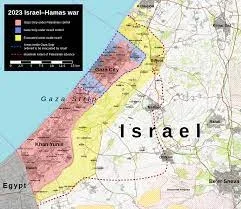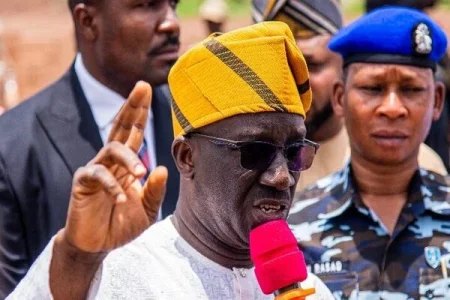
The United States vetoed a UN Security Council resolution for a cease-fire in the Israel-Hamas conflict on December 8. The resolution, supported by Arab states, had 13 votes in favor, one (the U.S.) against, and the United Kingdom abstained.
The U.S. deputy representative to the UN, Robert Wood, argued that the resolution was rushed and ignored diplomatic efforts to provide aid to Gaza and free hostages taken by Hamas in the October 7 attack on Israel.
Wood proposed language reinforcing life-saving diplomacy, increasing humanitarian aid, encouraging the release of hostages, and laying the groundwork for a durable peace, but these recommendations were mostly ignored. Foreign ministers of Arab countries, pushing for a cease-fire, met with U.S. Secretary of State Antony Blinken, who aimed to discuss Gaza's future post-Hamas.
However, ministers rejected this approach, calling the U.S. veto an endorsement of further violations of international law and war crimes.
The UN draft did not condemn Hamas, and Wood noted that it failed to acknowledge Israel's right to defend itself against terrorism.
The U.S. has previously vetoed similar resolutions, and Russia and China vetoed a U.S. resolution condemning the Hamas attack and calling for the release of hostages and aid into Gaza.
UN Secretary-General António Guterres invoked a rarely used article of the UN Charter earlier in the week, urging the Security Council to pass a resolution for a humanitarian cease-fire between Israel and Palestinian militants




